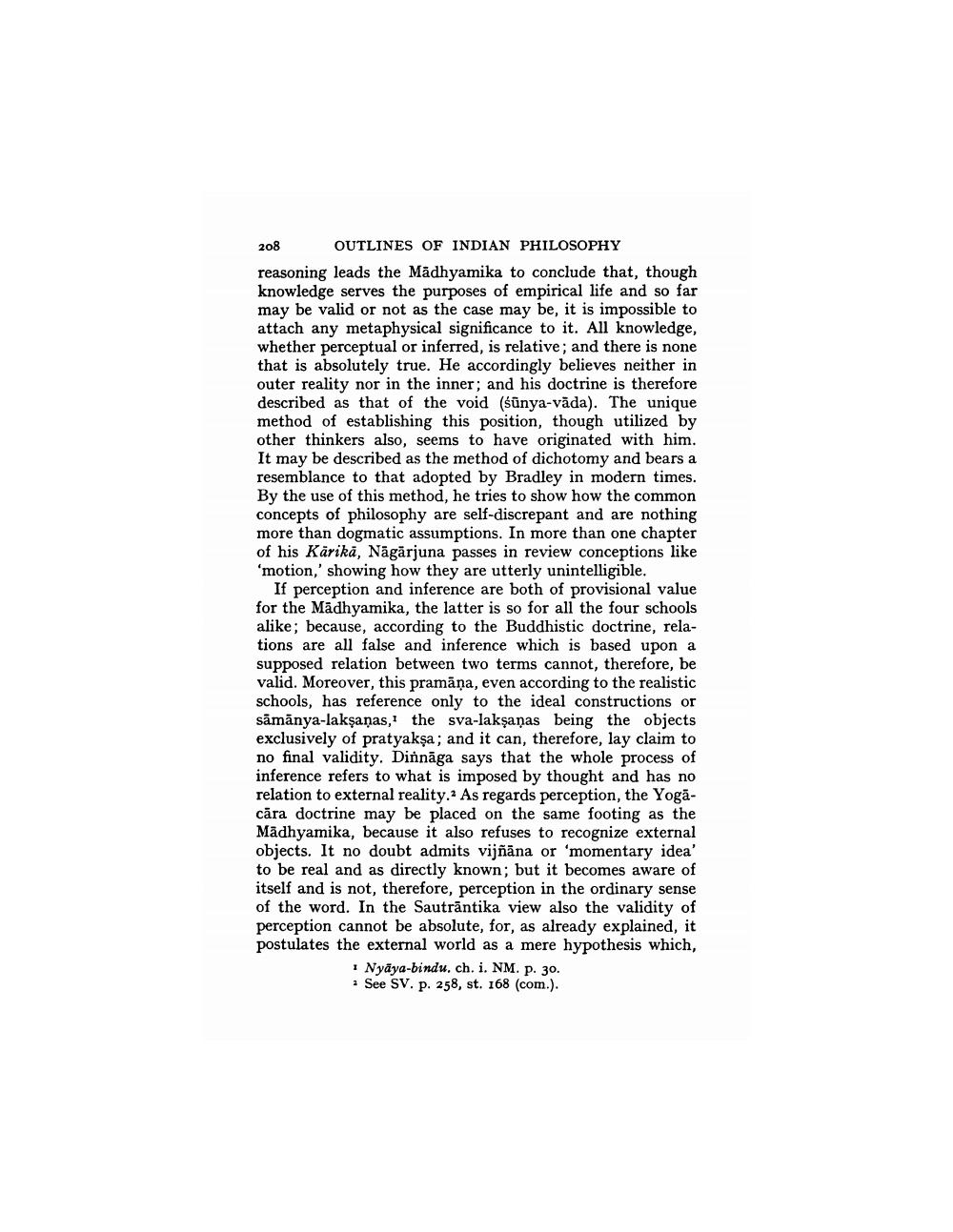________________
208 OUTLINES OF INDIAN PHILOSOPHY reasoning leads the Mädhyamika to conclude that, though knowledge serves the purposes of empirical life and so far may be valid or not as the case may be, it is impossible to attach any metaphysical significance to it. All knowledge, whether perceptual or inferred, is relative; and there is none that is absolutely true. He accordingly believes neither in outer reality nor in the inner; and his doctrine is therefore described as that of the void (sünya-vāda). The unique method of establishing this position, though utilized by other thinkers also, seems to have originated with him. It may be described as the method of dichotomy and bears a resemblance to that adopted by Bradley in modern times. By the use of this method, he tries to show how the common concepts of philosophy are self-discrepant and are nothing more than dogmatic assumptions. In more than one chapter of his Kärikā, Nāgārjuna passes in review conceptions like 'motion,' showing how they are utterly unintelligible.
If perception and inference are both of provisional value for the Madhyamika, the latter is so for all the four schools alike; because, according to the Buddhistic doctrine, relations are all false and inference which is based upon a supposed relation between two terms cannot, therefore, be valid. Moreover, this pramāna, even according to the realistic schools, has reference only to the ideal constructions or sāmānya-laksaņas, the sva-lakşaņas being the objects exclusively of pratyakşa; and it can, therefore, lay claim to no final validity. Dinnāga says that the whole process of inference refers to what is imposed by thought and has no relation to external reality. As regards perception, the Yogacāra doctrine may be placed on the same footing as the Madhyamika, because it also refuses to recognize external objects. It no doubt admits vijñāna or 'momentary idea' to be real and as directly known; but it becomes aware of itself and is not, therefore, perception in the ordinary sense of the word. In the Sautrāntika view also the validity of perception cannot be absolute, for, as already explained, it postulates the external world as a mere hypothesis which,
· Nyāya-bindu. ch. i. NM. P. 30. - See SV. p. 258, st. 168 (com.).




